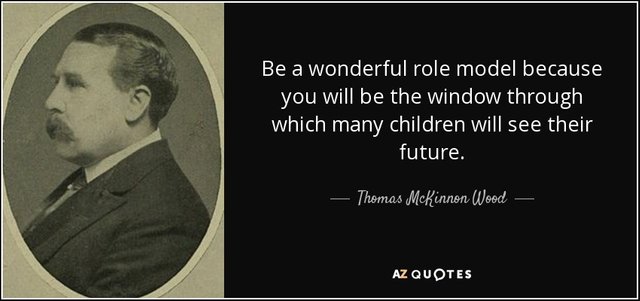ARE WE TEACHING OUR CHILDREN THE CORRECT PRINCIPLES AND VALUES IN LIFE?

Are we teaching them the correct moral values?
*Respect, kindness, honesty, courage, perseverance, self-discipline, generosity, dependability, commitment, these are the values that we need to instil in our children. These are the values that will lay the foundation for them to become good citizens. We are not fulfilling our responsibilities as parents if we do not teach them the correct moral values.

“Of course, this is often easier said than done. Teaching values takes time —a scarce commodity for many parents today. “Our increasingly competitive economy is creating an environment where Mom and Dad are spending longer hours at work and fewer hours with their children,” observes Gary Hill, Ph.D., director of Clinical Services at The Family Institute at Northwestern University.
As a result, outside influences like peer pressure, Internet, social media, music, internet and video games, television, movies, have a greater effect on our children, shaping their perspectives more than ever before.

“What’s a parent to do? “You need to make time to be with your kids and make the time you have with them really count,” Dr. Hill urges. “Talk with them about what’s right and wrong, and what constitutes good behavior and what doesn’t.”
Have these kinds of conversations with your kids on a regular basis so that the topic of values becomes a completely “normal” one in your household. That way, in the future, if your children do face moral conundrums, they’re going to be more comfortable broaching the subject with you than with their peers. If you don’t address these issues with your kids, society will fill in the void, says Dr. Hill.”


Dr. Hill suggests 10 practical suggestions to help teach and communicate with your children
- Model good values.
- Apologize to your children when you make mistakes
- Use every day experiences as a springboard for conversation
- Read the Bible with your children
- Share your personal experiences
- Hold your children accountable for their mistakes
- Don’t let your children take the easy way out of challenges
- Involve your children in encouraging and helping others
- Monitor television viewing and Internet use
- Applaud good behavior
If you would like to read the full article the link is: https://www.ucg.org/the-good-news/10-practical-ways-to-teach-your-children-right-values

I feel that the principle of Modelling good values is the most important. We as parents need to realise that what we say, do and act has an influence on our children. We are our childrens role models. We need to live the values that we teach and want to instil in our children. Children see how we treat them and others, they listen to our conversations and see how we interact with other people.
Dr Hill says, “If you want your children to exhibit values like honesty, self-respect and compassion, then you need to show these qualities yourself. All the teaching in the world can be undone if your children watch you behave in ways that contradict what you’ve said.

Your kids won’t think it’s important to persevere if you’re routinely giving up on diets or exercise programs, or quitting college classes when they get tough. They won’t think it’s important to follow through on commitments if you back out on organizing the church fundraiser or fail to take them to the zoo as you promised.
They won’t think there’s anything wrong with lying if they hear you tell your boss you’re sick when you just don’t want to go to work, or if the phone rings and you tell your child to tell the person that you’re not home.”
“If there’s a discrepancy between what you say and what you do, your kids are just going to ignore what you told them. But if your actions are consistent with your words, then your message is going to be reinforced,” stresses Dr. Hill. Your children will know that what you tell them to do is vital if they see that you always “practice what you preach.”

Dr. Hill says, “Of course, everyone falls short now and then. Acknowledge to your children that dependability—or whatever character quality trait you failed to live up to—is still important to you.”
“Take the time to talk with your children. Talk about what they did right, what they did wrong, how to make better moral decisions, what character traits God wants to see in us, and why you’ve made certain choices in your own life.”
“Don’t let yourself get so busy that you stop having ‘real’ conversations with your kids,” urges Dr. Hill. It sounds cliché, but children do grow up very fast. Depending on their age, you may have them living in your home for just five or 10 more years.
“You need to use the time you have with your kids very wisely,” concludes Dr. Hill. “Make sure you build time into your schedule for consistent, quality, face time with your kids—while they’re still kids.”
Our Children’s self-worth and respect for themselves grow as they learn to say no to the things that they know are not the correct values and principles that are being taught at home.

I've found that children aren't very receptive to feedback unless you have invested the time to have a really good relationship with them. You can tell them about good habits, honesty, etc; but if they lack the will it is useless. You need to have fun with them and have conversations where you don't put any pressure on them - just let them be their honest selves, and talk about anything they are interested in. After that you can have more fruitful discussions. That's my experience. In any case, it's incredibly interesting and challenging!
Thank you Idealist, I agree you need to let them know you love them and are interested in them, and then you teach them by example as the occasions arise. We need to realize that we are our children's role models and if we teach them a principle we have to live by that principle or else they will think we are huge hypocrites.